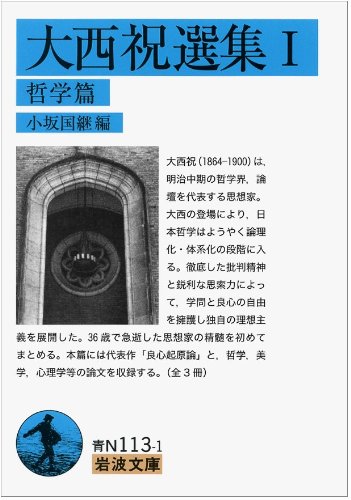1 0 0 0 OA サステイナビリティと環境倫理学
- 著者
- 小坂 国継
- 出版者
- 東洋大学「エコ・フィロソフィ」学際研究イニシアティブ(TIEPh)事務局
- 雑誌
- 「エコ・フィロソフィ」研究 別冊 = Eco-philosophy Supplement (ISSN:18846904)
- 巻号頁・発行日
- no.4, pp.67-74, 2010-03
1 0 0 0 OA 私と汝 人格的世界
- 著者
- 小坂 国継
- 出版者
- 西田哲学会
- 雑誌
- 西田哲学会年報 (ISSN:21881995)
- 巻号頁・発行日
- vol.7, pp.13-34, 2010 (Released:2020-03-23)
After systematizing the so called logic of the place as a self-awakening system comprised of the manifold universals in Ippansha no Jikakuteki Taikei(1930), Nishida Kitaro, in his next book Mu no Jikakuteki Gentei (1932), began to discuss the personal world as the world of self-awakening limitation of the place of absolute nothingness itself, which was of ultimate metaphysical reality. The personal world is, as it were, the actual world seen from the place of absolute nothingness, and it is regarded as the world in which the personal I and Thou mutually interact at their foundation, which is absolute nothingness. With the change of his perspective, Nishida’s concept of self-awakening (jikaku)also changed. Up until this time, self-awakening had been thought as “seeing one in oneself,” but it came to be thought as “seeing oneself in the other” or “seeing the other in oneself.” According to Nishida, I meet Thou in the place of absolute nothingness that is the deepest bottom of oneself. Thus, I do not meet Thou in the outer objective world but in the inter-subjective world leading to absolute nothingness. Therefore, the Thou seen at the bottom of I is essentially nothing but me. I am Thou, and Thou are I. I and Thou are one and the same. By the way, Nishida’s notion of I and Thou reminds us of that of Martin Buber. In fact, there are places in both theories that overlap. Both regard I and Thou as interacting and respecting each other’s personality. But Buber talks of I and Thou confronting each other in dialogue, while Nishida thinks of I and Thou meeting at the bottom of oneself. The eternal Thou spoken by Buber can be said to correspond to Nishida’s absolute nothingness. Both eternal Thou and absolute nothingness underlie I-Thou relationship. But eternal Thou is met through a concrete individual Thou; I and Thou do not meet in the eternal Thou. Rather, eternal Thou is thought to be met through the meeting of the I and Thou. Thus, eternal Thou is seen as the result of the meeting of I and Thou, while according to Nishida I meets Thou in absolute nothingness. So absolute nothingness is I, and at the same time he is also Thou. It is thought that such differences represent the differences in their idea of reality, or, perhaps, reflect the differences in the cultural background on which their thinking is based.
1 0 0 0 OA 書評 藤田正勝『西田幾多郎 ― 生きることと哲学』
- 著者
- 小坂 国継
- 出版者
- 西田哲学会
- 雑誌
- 西田哲学会年報 (ISSN:21881995)
- 巻号頁・発行日
- vol.6, pp.125-127, 2009 (Released:2020-03-23)
1 0 0 0 OA 場所の論理と行為的直観
- 著者
- 小坂 国継
- 出版者
- 西田哲学会
- 雑誌
- 西田哲学会年報 (ISSN:21881995)
- 巻号頁・発行日
- vol.1, pp.29-40, 2004 (Released:2021-01-16)
1 0 0 0 初期ギリシア哲学者の実在観
- 著者
- 小坂 国継
- 出版者
- 日本大学経済学部
- 雑誌
- 研究紀要. 一般教育・外国語・保健体育 = Research bulletin. 日本大学経済学部 編 (ISSN:13428616)
- 巻号頁・発行日
- no.76, pp.25-46, 2014-10

